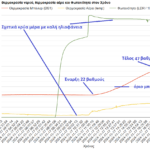Horace Bénédict de Saussure – Solar energy
Introduction
Horace Bénédict de Saussure (1740–1799) was a Swiss physicist and geographer, known for his significant contributions to the science of solar energy. With his innovative thinking and experimental approach, he paved the way for modern solar energy applications.

His Early Studies
Born in Geneva, de Saussure was the son of the famous geographer and naturalist, Benjamin de Saussure. From a young age, he showed an interest in physics and scientific observation. His passion for science and observing nature led him to develop a solar thermometer in 1767, which is considered the first solar heat collector in history.
The Solar Collector
The solar collector that de Saussure built was a simple yet revolutionary device. It used an enclosed box with transparent surfaces to allow sunlight to enter and heat the air and objects inside. De Saussure observed that the temperature could rise significantly, enabling the heating of liquids and the retention of heat. This solar collector was a crucial step toward the development of modern solar water heaters.
Scientific Legacy
De Saussure’s contributions were not limited to the invention of the solar collector. His research on solar energy and natural processes had a profound impact on the fields of physics and thermodynamics. His works significantly influenced later scientists, shaping the development of solar technologies and the understanding of solar energy as a renewable resource.
Conclusion
Horace Bénédict de Saussure is a pivotal figure in the history of solar energy, with his innovative observations and experimental approaches marking the beginning of a new era in energy science. His work continues to inspire scientists and researchers working on sustainable and renewable energy today.
- Improvements in the Placement of the Data Logger - 29 January 2025
- Solar Water Heater Statistics – December 2024 - 10 January 2025
- Washing machines with dual water supply - 24 December 2024











